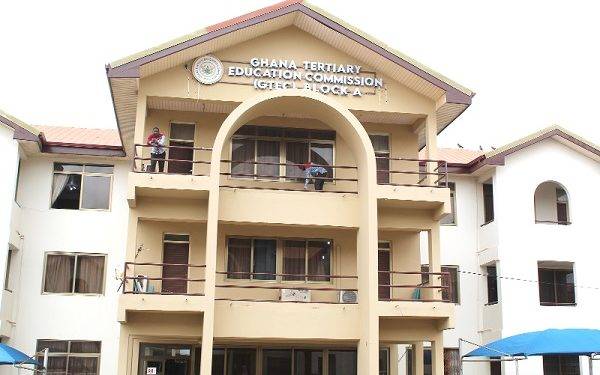The Ghana Tertiary Education Commission (GTEC) has appealed to the Colleges of Education Teachers Association of Ghana (CETAG) to call off its strike to pave the way for further dialogue and amicable resolution of their grievances. This call follows a recent closed-door meeting between the two parties, held shortly after CETAG declared a nationwide strike on Thursday, January 2, 2025.
CETAG’s decision to embark on industrial action stems from unresolved concerns over conditions of service, which they argue have been neglected for too long. The strike, which effectively halts all academic activities in colleges of education across the country, has raised concerns about its timing and potential impact on the education sector.
In a press statement issued after the meeting, GTEC’s Director-General, Ahmed Jinapor Abdulai, described the strike as "poorly timed and counterproductive." He explained that ongoing efforts to address CETAG’s demands should not be derailed by the current impasse, emphasizing the need for cooperation to resolve the matter.
"This strike is coming at a time when admissions are ongoing, and WAEC results have just been released. Withdrawing services entirely at such a critical moment means students cannot be guided through the admissions process, which could disrupt the academic calendar significantly," Mr. Abdulai remarked.
The Director-General further highlighted the substantial resources already invested in addressing CETAG’s concerns. According to him, GTEC, in collaboration with the Fair Wages and Salaries Commission (FWSC), has been working tirelessly to resolve issues related to the migration of CETAG members to a university payroll system. He acknowledged historical challenges that have delayed the process but reaffirmed GTEC's commitment to seeing it through.
"This is not a sudden development," Mr. Abdulai stated. "We have been working closely with FWSC for the past two months, mapping out solutions at a significant cost to GTEC. Despite this, CETAG has chosen to declare a strike, citing historical doubts surrounding the process. This decision is extremely unfortunate, as it affects not just the teachers but also students and the entire education system."
GTEC’s Director-General expressed concern over the broader implications of the strike, noting that it effectively shuts down operations in colleges of education. He called on CETAG to reconsider their position and prioritize dialogue over confrontation.
"We strongly urge CETAG to suspend the strike immediately," he continued. "By doing so, we can continue discussions in good faith and expedite solutions to their concerns. A prolonged strike benefits no one and could have long-lasting consequences for the education sector."
The strike has drawn mixed reactions from the public and stakeholders in the education sector. While some sympathize with CETAG’s grievances, others argue that the timing of the industrial action is counterproductive, particularly as it coincides with critical academic processes.
Education analyst Samuel Kweku Mensah weighed in on the issue, stating, "CETAG’s concerns are valid, but their approach could undermine the progress made so far. A strike should be the last resort, not the first step, especially when discussions are ongoing."
On the other hand, CETAG members maintain that their frustrations stem from years of unfulfilled promises. Speaking to the press, a CETAG representative who wished to remain anonymous said, "We have been patient for too long. Every year, we hear assurances, but nothing changes. This strike is our way of holding the authorities accountable."
Despite the tensions, GTEC remains optimistic about finding a resolution. Mr. Abdulai reiterated GTEC’s readiness to work collaboratively with CETAG to address their grievances comprehensively.
"We are not here to antagonize anyone," he said. "Our goal is to ensure that every stakeholder in the education sector, especially our teachers and students, feels valued and supported. The commission is fully committed to resolving this issue as quickly and fairly as possible."
The strike comes at a time when Ghana’s education sector is undergoing significant reforms aimed at enhancing teacher welfare and improving the quality of education. However, the current standoff between CETAG and GTEC highlights the challenges that often accompany such reforms.
Observers have called on both parties to prioritize the interests of students and the nation at large. Many believe that open communication and mutual compromise are key to resolving the impasse.
As the strike enters its second day, stakeholders are closely monitoring developments, hoping for a swift resolution. The outcome of the ongoing discussions between GTEC and CETAG could set a precedent for how labor disputes in Ghana’s education sector are handled in the future.
For now, the education sector waits with bated breath as both sides navigate this delicate situation. Whether CETAG will heed GTEC’s call to suspend the strike and return to the negotiating table remains to be seen.
With the academic calendar hanging in the balance, the resolution of this impasse is critical to ensuring that Ghana’s colleges of education can continue to fulfill their mandate of training the nation’s future educators.




No comments yet
Be the first to share your thoughts!